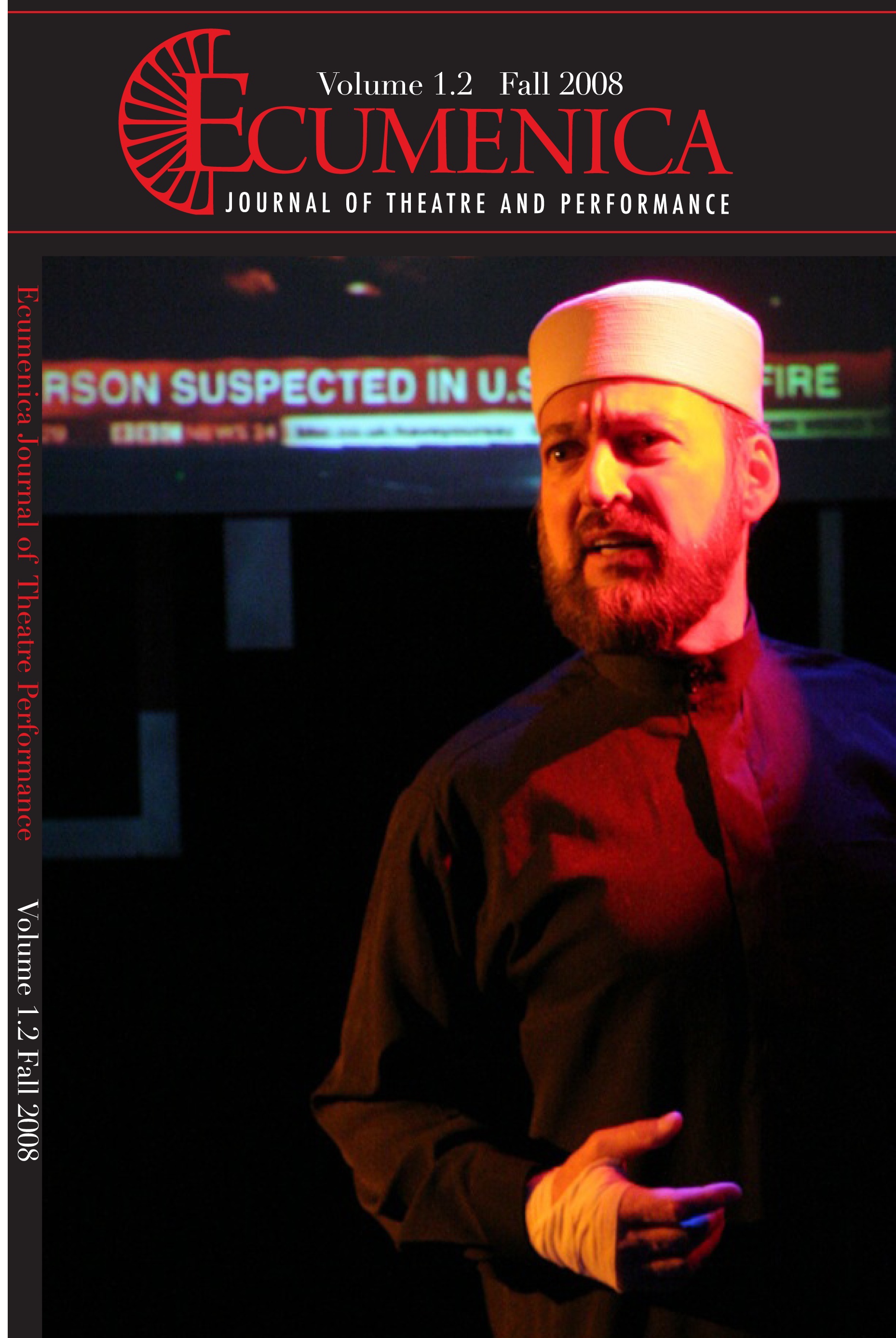
Carolyn Roark
Some months ago, Hazem Azmy and I were discussing the movement of ideas between “East” and “West”—those two mythical zones that fit so well into the binary classification system persisting in public discourse. Even though it elides, even denies, the polymorphous character of our world, you still see it in media outlets, on blogs, in café conversation: East/West, democracy/imperialism, Muslim/Christian, all part of a larger tendency to view our world as something easily divided into clear and polar opposites. And within that framework, Hazem lamented, there manifests a tendency to focus on the flow of culture from the West into the East, and the ways in which the East is not the West.
With this special issue of Ecumenica, we want to do more than simply correct a perceived imbalance in the relationship between the two faces of that binary. We want to explode the notion of East/West as fixed geographical and cultural entities, especially with regard to Muslim lives and practices. The venue for our dialogue, Skype’s internet chat capability, demonstrates the very complexities we addressed. In that early conversation, Hazem and I discussed the notion that information and ideas rarely move in straight lines. They scatter, they swirl, they drift, pushed by forces that move like ocean currents. So do people. Muslim cultures thrive all over the world, and “Performing Islam/Muslim Realities” aims to address some of the ways in which Islamic communities engage in theatrical activity, and how specific examples of theatre respond to contemporary Islam in places like Malaysia, the U.S., Egypt. Performance strikes me as an ideal medium for such inquiries, because it provides human beings an effective means of making sense of complicated realities.
In his novel If On a Winter’s Night a Traveler, Italo Calvino relates an anecdote of the Prophet Mohammed: “[…]while dictating to the scribe Abdullah, Mohammed left a sentence half finished. The scribe, instinctively, suggested the conclusion. Absently, the Prophet accepted as the divine word what Abdullah said. This scandalized the scribe, who abandoned the Prophet and lost his faith” (182). Calvino’s character goes on to insist that the scribe was wrong to do so, to misunderstand and reject Allah’s invitation to make him a collaborator in the sacred work. The Prophet understands, as Abdullah does not, the movement of the Divine in a seemingly thoughtless human impulse. The word, according to Calvino, only becomes definitive when it becomes embodied as writing.
It is only through the confining act of writing that the immensity of the nonwritten becomes legible, that is, through the uncertainties of spelling, the occasional lapses, oversights, unchecked leaps of the word and the pen. Otherwise what is outside of us should not insist on communicating through the word, spoken or written: let it send its messages by other paths. (183)
The anedote is clearly apocryphal, certainly unorthodox, and possibly heretical. But keep in mind: Calvino is not, of course, attempting to proffer a theology for the Muslim faithful or a reliable exegetic method for reading the Koran. Instead, the passage touches on the role of the human in any relationship with the Divine or the unknown. When the “prophetic raptus” becomes the written word, the limitations of the medium reveal the limitations of the mortal writer alongside the dictates of the deity. Theatre embraces the same project and meets similar resistance. By giving things form in the performance space, we attempt to assign meanings (both through the word and those “other paths” Calvino suggests). At the same time, we are forced to see and recognize the limits of what we can do and say—what our bodies can accomplish, what our staging can depict, what our societies will allow us to show. Add to that the inclination of the artist to inscribe their own perspective on the work (Azmy and Carlson’s editorial for this issue offers a powerful example of such an act)—in the act of expression the immensity of the unexpressed ( and unexpressable?) becomes legible. Once again, God wriggles out of the frame that was built to hold the divine. Still, the human being knows himself or herself a bit better. Which is possibly the point.
This issue of Ecumenica grows from a desire to explore how Muslim performers understand Islam, themselves, and their world through theatre, and the ways that perfomance illuminates Muslim realities. Scholars working from within a tradition (cultural, religious, or what have you) can be very possessive, and others without tend to generalize in counterproductive ways. Projects such as this one aim to enrich the discourse by bringing a multiplicity of perspectives into view, while leaving the door open to future investigation.
Works Consulted
Calvino, Italo. If On a Winter’s Night a Traveler. Trans. William Weaver. New York: Harcourt, 1979.
